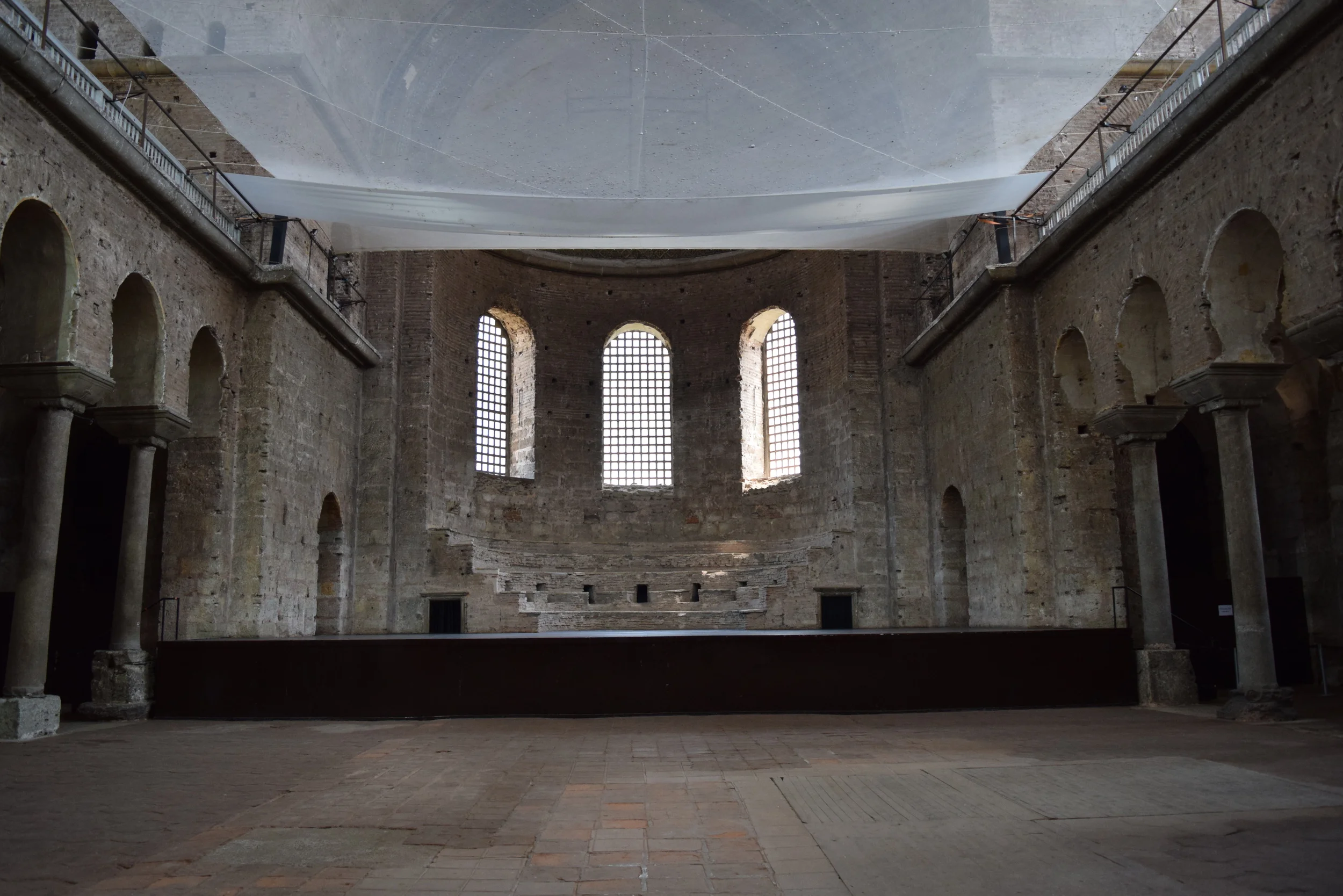7/10
After spending much of Wednesday sleeping, I spent nearly all of yesterday on my feet. I was exhausted by the end, but it was well worth it.
Istanbul offers a museum pass for 85 lira (about $32) that will get you into a dozen or so sights, including most of the notable museums. It's worth it if you visit even 3 or 4 spots. I know that I got my money's worth after yesterday alone.
The first place I visited was Hagia Sophia. Built nearly 1500 years ago by the Byzantines as a church, it was converted to a mosque by the Ottomans after they took Constantinople. In 1932 it was made a museum. The building's history is demonstrated by the mix of Christian iconography and Islamic features such as calligraphy and minarets. Impressive as it is from the outside, it should be seen from the inside to be truly appreciated. The main body of the building is huge when you factor in how high up the dome goes. It's hard to imagine that such a building was even possible in the 6th century. Though it's a popular tourist sight, it didn't feel crowded at all inside. Perhaps it was just my timing, but that was a welcome relief from what I've come to expect of these kinds of places. The only negative thing I can say is that they were doing renovations inside which obscured some features, but that's a minor complaint. I assume preserving the building is slightly higher priority than ensuring that I can get an unobstructed photo of the dome.
Mosaic of the Virgin Mary and Child flanked by calligraphy
Outside the main building, but within the complex are a number of tombs (türbes) of Ottoman sultans. The interiors of these feature beautiful tile work and numerous sarcophagi. A notable feature of the sarcophagi is that those of the sultans and princes have turbans affixed to them.
Tomb of Sultan Selim II
Adjacent to Hagia Sophia is the Topkapi Palace complex. This was the residence of Ottoman sultans for several centuries. It consists of a series of four courtyards surrounded by exterior walls. It's clear from exploring the spaces for the sultan and his family that they lived an opulent lifestyle. Every space they occupied is intricately detailed. Beyond those spaces are a number of spaces for the workers, soldiers, and courtiers that also occupied the complex.
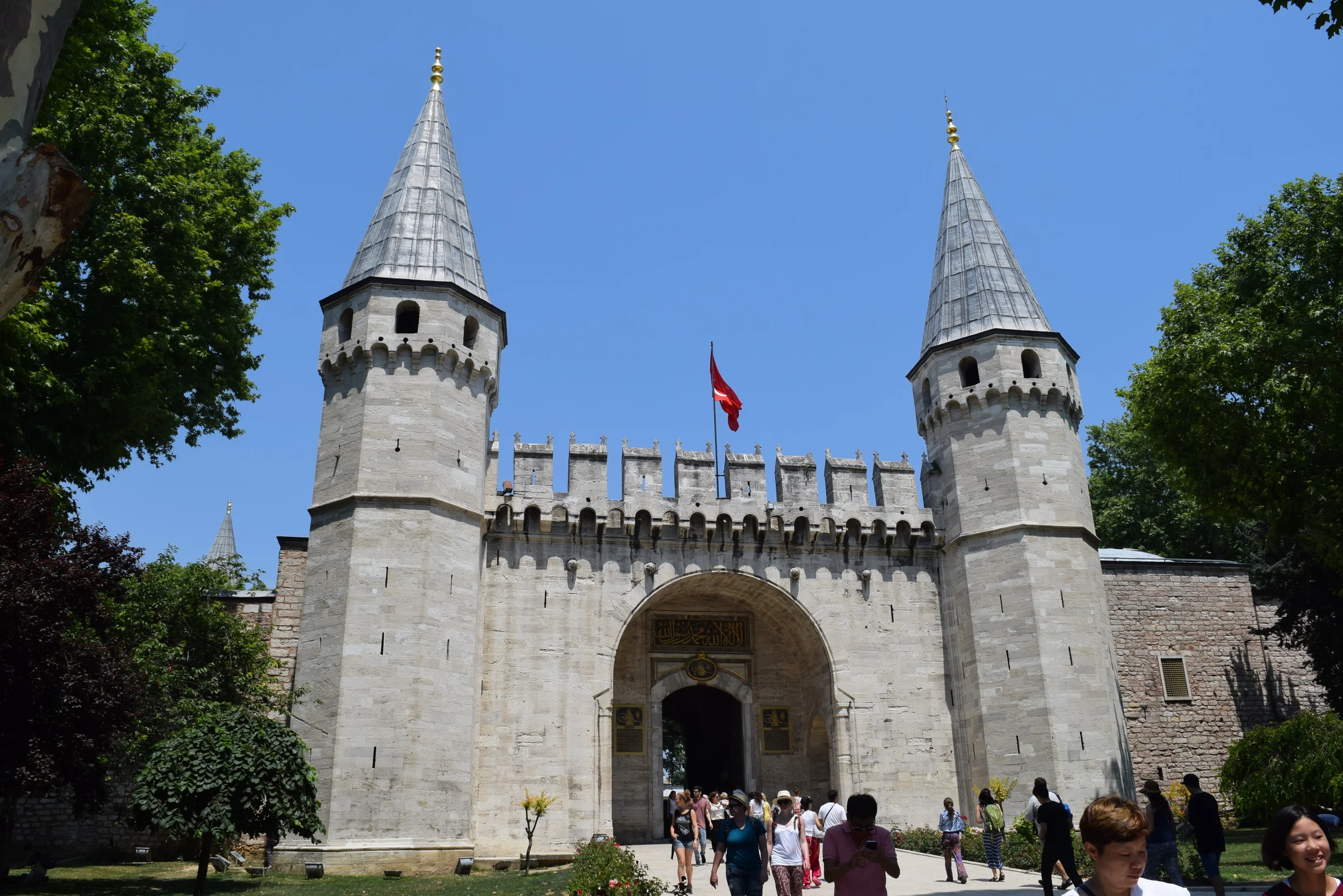
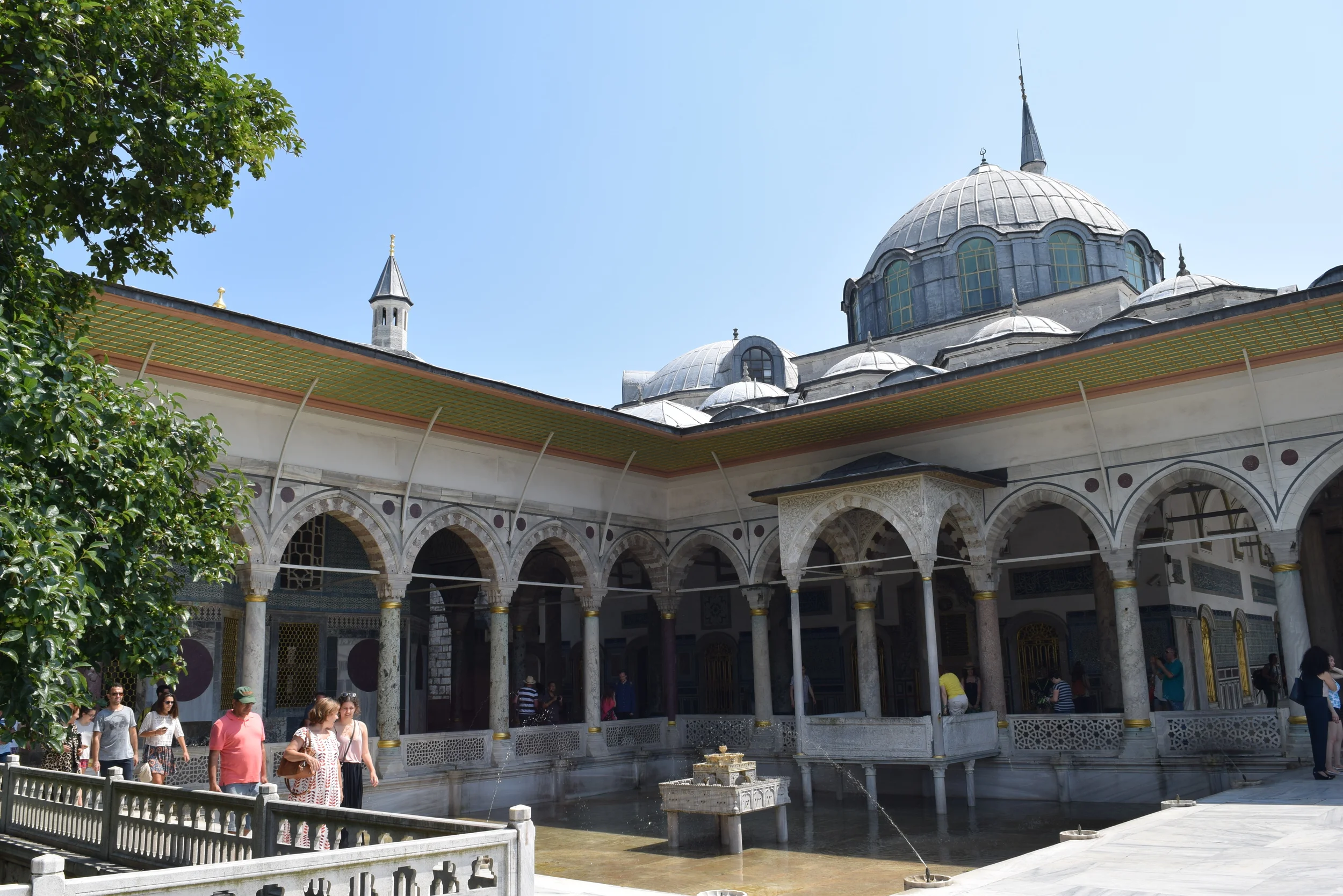
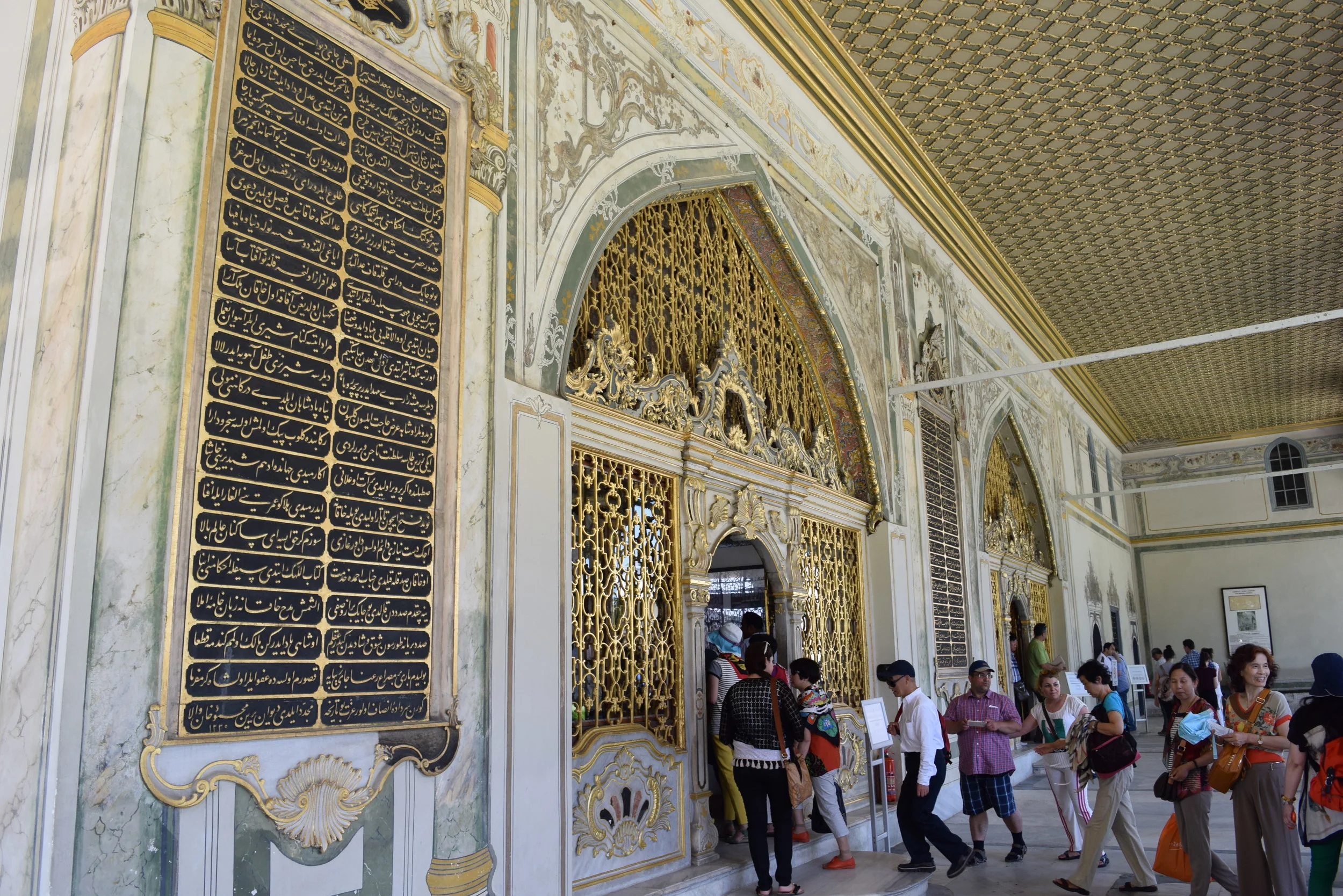

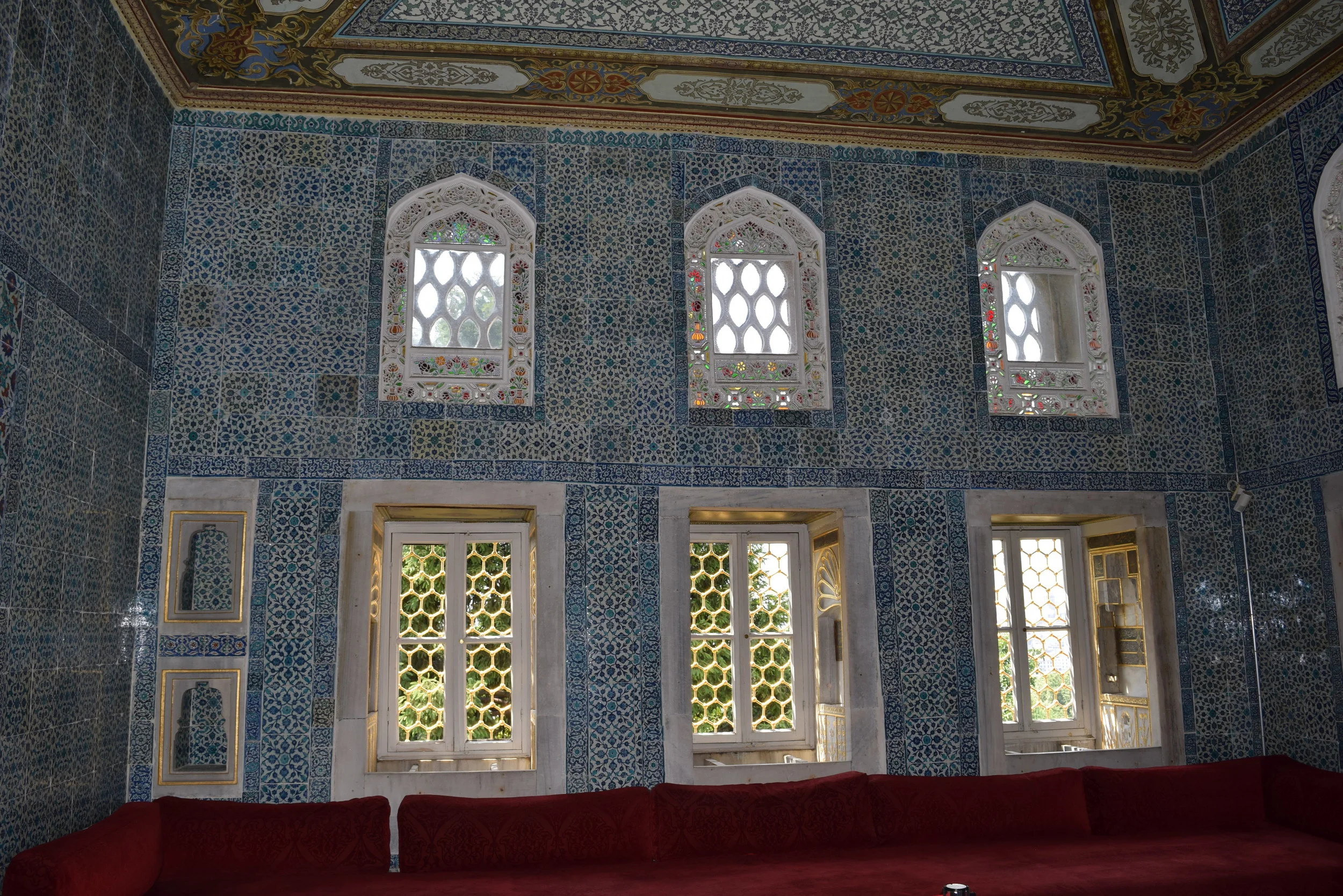
On the periphery of the complex is Hagia Irene. This easily overlooked building is a former church that was turned into an arsenal by the Ottomans. It really doesn't offer much to see, but it was dark, cool, and completely empty inside. After spending so much time walking in the sun, this was a welcome relief. Nets designed to collect bird droppings and feathers detract from the ability to relly appreciate this building.
Hagia Irene complete with net
My last stop was to the nearby Istanbul Museums of Archaeology. These are a few buildings packed with sarcophagi, pottery, tiles, statues, and anything else you might expect to be dug up from thousands of years of civilization in the region. It's a bit overwhelming to walk through and see how much history the region has.
Sarcophagi at the Archaeological Museum
Archaeological Museum exterior
I'm glad to say it was a long day, my feet are sore, and it is just what I would hope for in a day while traveling.
